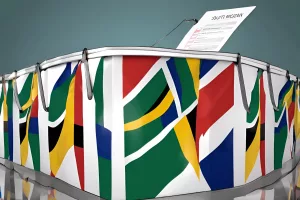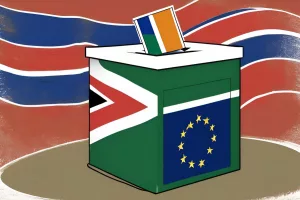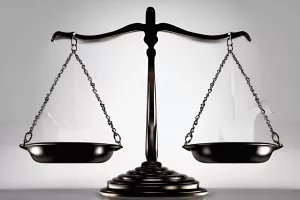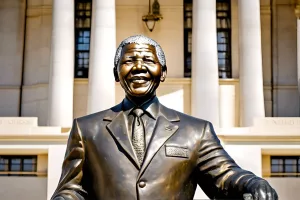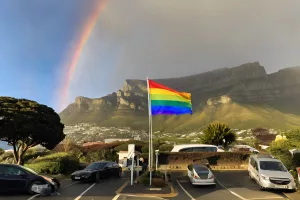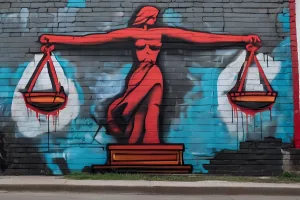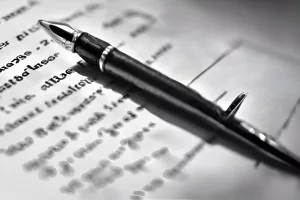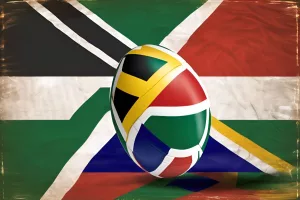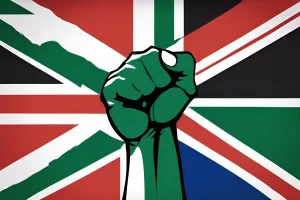South African businesses and brands are offering a variety of incentives like free gourmet treats, discounts and deals, and even discounted Uber rides to encourage citizens to participate in the general elections and exercise their right to vote. The hospitality industry is also joining in, with Southern Sun offering a 20% discount for those planning a vacation around the election period. This innovative approach to promoting voter participation not only encourages citizens to engage in democracy but also supports local businesses, fostering a strong sense of community and shared responsibility.
South Africa’s Parliament is a symbol of democracy, offering citizens a platform to engage in nationbuilding and shape the political landscape through their right to vote. The upcoming national and provincial elections coincide with the 30th anniversary of democracy and mark a significant milestone in the nation’s democratic fortitude. Presiding Officers Tsenoli and Masondo inspire citizens to exercise their constitutional right to vote, reminding them that their vote is their voice and chance to select who will represent them. Parliament is more than just a legislative body; it is a guardian of democratic principles, offering a platform for citizens to engage in the mechanisms of nationbuilding.
President Cyril Ramaphosa delivered a captivating preelection homily in 2024, reflecting on the achievements and challenges of the sixth democratic administration and the path ahead. He praised the Independent Electoral Commission for their meticulous preparations for the election and acknowledged the indispensable role of law enforcement agencies and security services in ensuring a peaceful electoral process. The President highlighted the considerable progress made towards restoring the economy, battling against genderbased violence, and increasing South Africa’s global influence. He urged citizens to renew their commitment to democracy, unite, and work towards creating a more prosperous South Africa.
South Africa’s Portfolio Committee on Home Affairs has established a new Electoral Reform Consultation Panel to assess the country’s current electoral system and propose necessary reforms. The panel comprises nine individuals with a unique combination of skills and experiences, and their work marks a pivotal stride in the ongoing evolution of South Africa’s democracy. The committee’s unwavering commitment to a representative and capable panel has set the country on a new trajectory, and the nation watches in anticipation as this group is poised to shape the future of South Africa’s democracy.
On Monday, May 13th, 2024, the Ad Hoc Committee on the General Intelligence Laws Amendment Bill met to consider public reactions to proposed changes, including responses from the State Security Agency (SSA) and legal guidance from the Parliamentary Legal Services. The exchange was an enlightening display of democracy at work, demonstrating the country’s dedication to transparency and active civic participation. The SSA’s constructive responses to public feedback and proactive engagement showcased their readiness to engage with the public, while the public’s participation exemplified an exemplary form of participatory governance.
South Africa’s journey towards development is intertwined with democracy, as evidenced by foundational documents like the Freedom Charter, Reconstruction and Development Programme, and the Constitution. The National Development Plan empowers South Africans with a vision of a more inclusive economy, a stronger state, and a society underpinned by leadership and partnerships. While there has been progress over the last three decades, major challenges remain, particularly in youth unemployment. Engaging with the youth and creating a supportive environment that empowers and uplifts them is critical for the country’s future.
South Africa’s upcoming elections offer the promise of strengthening democratic principles and paving the way for a fairer basic education system. The country has made significant progress in achieving nearuniversal access to education for 7 to 15yearolds, and initiatives like the National Student Financial Aid Scheme and a focus on entrepreneurial skills further support education beyond the confines of schools. The North West Basic Education Lekgotla exemplifies the transformative power of unity and teamwork in enhancing the quality of basic education across the province, with a focus on infrastructure development and promoting STEM education.
The evolution of democracy in South Africa began in 1994 with the collapse of the apartheid era and the birth of a new period. The national Constitution represents the ambitions of a nation battling for democratic norms, social justice, and basic human rights. Over the years, Parliament has improved the lives of millions through its legislative functions, but South Africa still struggles with societal problems like poverty, corruption, crime, violence, unemployment, genderbased violence, and disparity. Despite these challenges, the country’s progress towards democracy and freedom is a narrative of hope and resilience.
April 27, 1994, marked the end of apartheid and the start of democracy in South Africa. This date is significant in South African history because it led to the first democratic elections and the election of Nelson Mandela as the first democratically elected president. The heroic men and women who led the struggle for justice, peace, and freedom are remembered, and the progress made in economic empowerment, education, healthcare, social support, and basic services is celebrated. South Africa stands as a beacon of hope for countries worldwide that yearn for social justice, peace, and a fair world order.
The Chatsworth Magistrate Court is a stunning symbol of hope and justice, representing South Africa’s transition to a country built on constitutionalism, dignity, and the rule of law. The recently renovated and expanded court cost nearly R203 million and incorporates ecofriendly solutions, making it easily accessible for people living with disabilities. In addition to being a tribute to freedom fighters and a crucial pillar of democracy, the project created job opportunities and training prospects for the community and employed 27 local subcontractors.
Strengthening Democracy: South Africa’s National Assembly Revamps its Petition Guidelines
South Africa’s National Assembly has made a significant decision to strengthen democracy by allowing the public to directly petition without the need for parliamentary intermediaries. This move aims to create a more transparent and accessible legislative process, breaking down barriers to democratic participation. Petitions must comply with guidelines for language, signing, submission, clarity, decorum, and supplementary documentation, and aim for action within the spectrum of the House, national government, or a Minister. This change signifies a new era of democratic participation, shaping the future of public involvement in governance.
South Africa’s Parliament has a dynamic weekly schedule of events, including committee meetings, Q&A sessions with the President, and discussions on human rights and bills. This week, the Parliament will focus on issues such as genderbased violence, property expropriation, and job creation. Through indepth examinations of proposed bills and amendments, the Parliament is committed to upholding the democratic ethos of South Africa and working towards the nation’s progress.
Rugby has had a significant impact on promoting national unity and identity in South Africa, cutting across societal boundaries and instilling a victory mentality in the people. The sport also acts as a ray of hope for the youth, illustrating that anyone can climb to national recognition, regardless of their humble beginnings. While South African rugby currently boasts a record number of World Cup victories and toptier players, there still exists a need to improve accessibility in township and rural areas, as well as the advancement of women’s rugby.
South Africa is facing political turmoil as the youth leader of the MK Party, Bonginkosi Khanyile, demands that expresident Jacob Zuma be included in the upcoming May elections. Khanyile’s bold stance has sparked controversy and heated discussions on social media. Another figure from the MK Party, Visvin Reddy, has also made headlines for his allegations of imminent riots if Zuma is excluded from the electoral process. The situation has raised concerns about the erosion of democratic values and uncertainty about the future of South Africa’s politics.
South Africa is facing political challenges as the Jacob Zumasupported MK Party threatens the country’s democratic values. The party’s spokesperson, Visvin Reddy, made a controversial video that undermined the essence of the democratic process. President Cyril Ramaphosa responded with a stern warning to those inciting potential chaos, emphasizing the government’s commitment to preserving democratic norms and ensuring stability. Ramaphosa’s unwavering opposition to threats against democracy demonstrates the strength and durability of South Africa’s democratic establishment.
South Africa’s Parliament is a bustling hub of decisionmaking and conversation, where the nation’s destiny is crafted. A typical week includes committee meetings, debates on national matters, and opportunities for public engagement. From thorough examination and indepth analysis to discourses on nationwide concerns, each day is a testament to South Africa’s dynamic democracy. The pulse of Parliament beats through its committee meetings, and public interaction is encouraged. Parliamentarians, such as Mr. Christiaan Frederik Beyers Smit, are committed to serving the public, and each week in Parliament showcases a vibrant blend of discussion, examination, and action.


